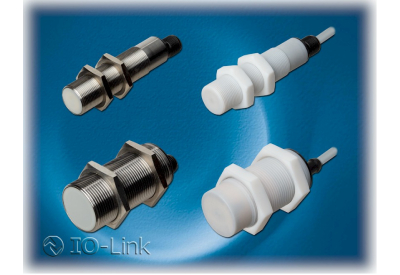Discover NEMA Motor Upgrade Potential with ABB’s Energy Savings Calculator
August 7, 2024

Forty-five percent of the world’s electricity is used to power electric motors in buildings and industrial applications.1 By 2030, this cost is projected to reach $900 billion annually.2 Lowering CO₂ emissions and increasing energy efficiency is critical for our planet, but also for ensuring stable and productive industry operations, lowering operating costs and total costs of ownership. To help motor operators better understand the financial and environmental benefits of upgrading current and end-of-life industrial electric motors, ABB has developed its NEMA motors Energy Savings Calculator.
The Energy Savings Calculator is an online tool that allows users to compare the electrical energy usage, costs and CO2 production of a motor currently in operation with that of a new, highly efficient ABB Baldor-Reliance® SP4™ NEMA Super Premium® efficiency motor. The tool has two modes: basic and advanced. The basic function allows users to search existing ABB Baldor-Reliance motors by catalog number, while the advanced option has fields for motor parameters such as power, efficiency class, speed and enclosure type to allow for comparisons with any existing motor.
Annual savings in kilowatt hours, energy percentages and U.S. dollars are provided, as well as energy consumption comparisons between the new and existing motor and annual CO2 reduction. A digital report with data and graphics can be exported in both the basic and advanced functions. Phase 2 of the Energy Efficiency Calculator, scheduled to launch later this year, will add variable speed motor calculations, input capabilities for multiple motors and additional enhancements to the current options.
ABB Baldor-Reliance SP4 motors are highly efficient, running cooler, reducing heat-based energy losses and extending bearing and other component life. Reducing energy losses also leads to lower electrical energy consumption, which lowers operating costs and total cost of ownership. They meet current U.S. Department of Energy efficiency standards as well as anticipated Medium Electric Motor (MEM) regulations, which take effect on June 1, 2027, in the United States.
“With so much of the world’s electricity being used to power industrial electric motors, investing now in high-efficiency motors will yield immediate, significant rewards in terms of energy savings and sustainability,” said Ben Hinds, vice president of product marketing and management for ABB’s NEMA Motors Division. “ABB is committed to enabling our customers to reduce their annual emissions of CO2 by 100 megatons from 2021 to 2030 while helping them to lower their energy costs. The Energy Savings Calculator is a powerful tool to help our customers increase energy efficiency while reducing their carbon footprint.”
It has been estimated that, if all of the more than 300 million industrial electric motor-driven systems currently in operation were replaced with optimized, high-efficiency equipment, global electricity consumption could be reduced by as much as 10 percent.3 The benefits of greater energy efficiency go well beyond the fight against climate change.
They contribute broadly to environmental conservation, cleaner air and water, better public health, energy independence and stronger economic growth and development. As the cost of electricity continues to rise – along with the demand for electricity driven by population growth and new technologies – ABB will remain at the forefront of energy efficiency and sustainability by embedding circularity in products and solutions, offering lifetime services and investing in new business models and technologies to reduce waste, increase recycling and foster reusability.
1] ABB, 2021. Achieving the Paris Agreement – The vital role of high-efficiency motors and drives in reducing energy consumption
2] ETC, 2021. Making Clean Electrification Possible: 30 Years to Electrify the Global Economy
3] Waide, P. and C.U. Brunner, 2011. Energy-Efficiency Policy Opportunities for Electric Motor-Driven Systems, International Energy Agency working paper
Related Story
ABB Baldor-Reliance EC Titanium Motors Earn ENERGY STAR Emerging Technology Award
The ABB Baldor-Reliance EC Titanium motor has been recognized with the U.S. Environmental Protection Agency’s 2024 ENERGY STAR Emerging Technology Award. This annual award recognizes products that meet stringent performance criteria in specific categories. By highlighting innovative solutions with the potential to significantly reduce greenhouse gas emissions, the award promotes promising technologies that may not yet fully align with the ENERGY STAR certification requirements or may be relatively more complex to properly install and operate.






